Season 3 / Episode 13 / 36:12
Michael Beckerman | CEO | CREtech | Putting a spotlight on tech and innovation in the built world
Transcript
DA: Welcome to TEN, the Tenant Experience Network, I’m your host David Abrams. In this episode, we are connecting with Michael Beckerman, CEO CREtech and CREtech Climate. In this episode, we learn about Michael’s career journey from public relations for commercial real estate, to launching a small news aggregator that has grown into something much bigger, now CREtech. Michael saw an opportunity to put a spotlight on innovation in the built world and create a global audience of startups, commercial real estate operators, and venture capitalists. Michael understands the pain points of the stakeholders and the CRE ecosystem, and felt that he could provide helpful added value. In our discussion, Michael notes the significant change in power from the landlord to the tenant, and the new recognition that customer demands and preferences are going to evolve the industry to deliver a hospitality approach to service. Now more than ever before real estate companies must think of themselves as a brand. For Michael, it is less about how many days people are in the office, and more about the experience that is offered when they’re there. Michael’s perspective on the rate of technology adoption by CRE provides an insightful context to better understand the pain points for stakeholders. I love Michael’s thoughts about the fluidity of the workplace, while he noted the paramount need to focus on the experience people receive no matter where they choose to work. Michael gravitates to the hard things, and I so enjoyed our time together and learning about where he sees the industry going in the future. We’re excited to share this podcast with you, so be sure to subscribe to TEN. So you never miss an episode of the Tenant Experience Network. And now I’d like to welcome Michael to the show. I’m really glad you could be with us today.
MB: David, thank you so much for having me. I’ve been a big fan of yours and the platform. I think we originally met, I guess it was around 2017, and you had an idea. I think you had a PowerPoint actually, before you had a platform. And I was just like, wow, that is an original idea, and he’s going to be successful. I knew that you had the grit and the experience and the determination and look at you now, so.
DA: Well it is all those three things and I could tell you without them I wouldn’t be here, particularly given that we met pre-pandemic and in all of my planning for what was to be, I’d never thought of it to plan for the pandemic. So you’re right.
Read more
MB:I don’t know anybody that did, my friend.
DA: And I do remember hearing about your first conference in 2017 and reaching out to you, sending you an email and in about 30 seconds you replied. And I think we connected on a phone call probably at that time, but you’ve always been just a so accessible and such a great supporter, so I’m really glad, really glad you could be with us on the program today. So just for all of our listeners, given that it’s been a journey for you as well. I’d love to hear about how this all came to be, about how you eventually came to create CREtech now, CREtech, and we’ll talk about Climate tech as well. But tell me about, you know, that journey and how you got started.
MB: Oh, thanks David. I don’t know that it’s an interesting story, but you know, more than happy to share. So I’ve only been in one industry my whole career, that’s commercial real estate. I started in my early 20s, failed college student and was looking just for some kind of career path to pay the bills and to put food on the table. And I stumbled upon sort of the commercial real estate industry, and I built a career of all things and public relations built an agency. I love, love media, still do, despite the extremes it’s gone to, but avid reader. And so I built that career, that agency over 25 or so years, it’s called Beckerman Public Relations, my niche was commercial real estate. And I’ve just been always somebody that’s been gravitates towards the blank canvas in life that I always feel like, at least for me, it’s probably why I didn’t go to college or most I think people would say when you get to the pinnacle of your career, stay there.
DA: Right.
MB: When I got to the pinnacle of that business and we were thriving, I decided it’s time to look around and do something else. I was just itching for to get my ass kicked and learn all new skills. So I started to look around and understood that there was no tech sector. Actually I built a small news aggregator. It was sort of my first for a news funnel, still around a couple hundred thousand people use it, as a free tool to aggregate real estate news. And around 2016, a good friend of mine, will give him props, credit here, Jeremy Noyer, was a top broker at CBRE and a dear personal friend had said, “You know, I think this is a bigger idea there.” And one of the things that I always try and also do, hard to tell with this response is be a better listener than talker. So when you listen, you can see opportunities. And Jeremy said, “I think there’s a bigger opportunity for you, given that you know this industry so well, there needs to be sort of a convener of the prop tech sector,” at this time in 2016, it was very, very small as you remember. And so I bought a small sort of meetup site called CREtech Intersect. And then we started organizing conferences. We rebranded as CREtech, commercial real estate technology. First conferences, and you were there from the very beginning, were probably 100, 200 people. And fast forward through the pandemic, you know, the one coming up in New York, which we’ll look forward to seeing you, will be, you know, a couple thousand people. So we’ve built a sort of a global audience all around. How do we help companies like yourself, how do we put a spotlight on all the great innovation that you and your colleagues are doing and really drive innovation in the built world. So that’s kind of what we’ve been focused on primarily over the last couple years.
DA: Well, you know, I think it’s interesting and I guess it just reemphasized for me that we actually share very, very similar path to where we are today. Because again, I ran marketing communications agency specializing in commercial real estate, pitched in one, what was then BC Place now Brookfield Place in Toronto. And, you know, again, built up that agency, and sort of got to the pinnacle of my career. And again, I could have just, I guess continued to ride that role, still a roller coaster a bit, and instead, you know, abandoned all that, for the life of a startup founder. So I guess we’re both a little bit wonky, you’re on mute there for a second, Michael.
MB: A little crazy I would say.
DA: A little crazy. So why do you think, again, not knowing you’d end up, you know, in this path, why do you think you were so uniquely suited? What has contributed to your success do you think?
MB:That’s such a good question I think it’s just really understanding this industry, which is while it’s the biggest industry on earth, it’s also one that has historically underinvested in innovation and technology. And I’ve also always been fascinated by how this industry moves and evolves. So, when I would meet a lot of the technology, the startups, and they didn’t really understand what it was going to take to get their tool adopted. I felt I could add some value there.
DA: Right.
MB: And then when I would meet with say, the chief technology officers, or the C-suite of the big real estate companies, I kind of understood what their pain points were, right? In terms of vetting and adopting a lot of these tools. And then I also understood from the venture perspective, which types of tools would be best to scale. So I think it was just like, sort of like this unique understanding of the ecosystem, that I could then help all the stakeholders within the quote unquote PropTech sector.
DA: All right, makes total sense to me. And I think certainly you have created a very needed enterprise to help navigate between those three different stakeholder groups. Let’s just fast forward. There’s a lot of commentary still today, and it seems like it’ll never end on what we call the return to workplace. And obviously some very extreme positions being expressed, some are confrontational, some are polarizing, you know, the HILO team believes that everyone needs to live and work in the world as it is right now. It’s not about returning to what was normal. It is about living for today in this new normal. And we believe this new normal is not a post COVID normal, but living with COVID, COVID is now part of our world. So I’m just curious, what do you think this all means for the commercial real estate industry? How can buildings continue to be an important part of this much larger workplace ecosystem?
MB: Great question. You know, it’s one of the reasons why I’ve been so fascinated with following your particular journey at HILO is that, you know, in my 35 year career in commercial real estate, I’ve never seen a time where there’s been such a fundamental shift of say power from the landlords to the occupiers, to the tenants. Never seen anything like this before. The great blogger, Anthony Slumbers, you know, talks about spaces of service, you and I both know Anthony well. And it’s a fundamental, it’s a paradigm shift, in the way that the industry operates where it used to be, if we build it, they will come, we will sign the lease. And we’ll see you in, you know, seven, 10.
DA: Five years, 10 years.
MB: Years, whatever it is. And now you’re hearing the industry talk about it’s customer base, which we’ve never really talked about. And so I think that genie’s out of the bottom and I don’t think is ever going back. And I think it’s a good thing, ’cause I think that’s, when we talk about what moves this market that will move the market. Customer demand and customer preferences will absolutely force the industry to adopt. And we’re seeing it. You know, your case in point, I mean your growth is a reflection of the industry, understanding that’s got to have more of a hospitality mentality.
DA: Right.
MB: That the people in the building, how they use it is paramount to the success of the building, you know? It’s not just got the least term that we wanted, and then we’ll see on the other side, it’s more about this is a sea shift in mentality and I think it’s a great thing for the industry.
DA: I do too. I think that’s going to be one of the great outcomes. Again, I recently interviewed Jon Love from KingSett, and Brian Rosen from Colliers, and both, and I’m not sure they would’ve said this exactly the same way pre pandemic, but both expressed that their customer now is each and every person that walks into their building every single day. That is a fundamental shift from, you know, just being concerned with the key general contact who signs the lease, and you don’t see again for five or 10 years.
MB: Yeah, and I would just echo that David, by saying, and again, you’re the expert in this space. You know, I think the other byproduct is that, real estate companies have to think of themselves more as a brand than ever before. So the customer does want to know who stands behind that brand, you know, and what do they stand for? The hospitality, the experience, the technology, there’s so many, you know, climate, there’s so many factors that go into it now. And I think the best companies and many of them are your customers are rising to that occasion and seeing this as a tremendous marketing advantage. No different than what we saw in the hotel industry where people seek out certain brands, wherever they travel or in the world, they want to stay at that particular brand ’cause of the consistency of service. So we’re seeing it in multi-family, we’re seeing it in office, et cetera, et cetera. And I think, again, it’s a great development for the industry and I don’t think it’s going back. So for me, it’s less about how many days a week are you in flex, you know? It’s more about the experience of the buildings themselves, how they perform, and how they service the occupants. And I think that is very, very exciting.
DA: It is. You know, the real estate the largest asset class in the world, the slowest to be disrupted and the last maybe to be disrupted by technology, we know it was slow before the pandemic. We believe the pandemic is accelerated the rate of adoption and engagement in technology. But again, just wanting your honest opinion, ’cause I’m still seeing it, ’cause I’m out there. Yes, I’m seeing tremendous positive momentum, but I’m also still seeing some players thinking, deliberating, wondering, like have they not realized yet, what will it still take, or what still needs to happen today to everybody to understand what you and I have been just been talking about? That the build it and they will come, those days are gone, and we’re not going back.
MB: Great, great, great. It’s something I think about, and I talk about all the time, our industry is infatuated, and it’s good, I’m not trying to poo poo it, but our industry is infatuated with venture dollars, a barometer for the success and wellbeing of our industry, and that is a false barometer. It is a good one, it’s an important one. It’s important to understand that and context of other things though. And the one that I pay attention to the most and this it’s difficult to measure, but again, if you’re in the industry, as long as I have, and you as well, you understand it, and that is adoption, right? Don’t talk to me about record, months, quarters, years, about venture. Talk to me about the adoption curve in our ecosystem. And there’s a lot of reasons why it’s still very slow. Number one, our PropTech universe, it’s still so young.
DA: Right.
MB: It’s only a few years old. So number one, it’s very, very early still, right? Number two, therefore it’s a very fragile ecosystem. Number three, there’s 10,000 startups competing for small market share. When you talk to the real estate companies, one of their frustrations with our industry is that there’s too many individual silos. A lot of the solutions do not integrate. They’re looking for single point solutions. And also when you start to talk to some of these global real estate companies, they’re like, well, you know what I’m using in Toronto, I can’t use in London. So they’re looking for more global solutions as well for the big companies and also the real estate companies, two other for factors to consider, one, a lot of them don’t have the infrastructure yet. They don’t have all the technology experts and talent to be able to vet, onboard, monitor these solutions. And then, the last point I would just make is that, you know, you’re asking an industry that it’s the riskiest industry on earth, because think about it, you know, think about, you’ll be in New York, think about Hudson Yards, think about the risk that it took, that somebody saw to build a city within a city on a rail yard.
DA: Yep.
MB: But their risk averse as it relates to technology. Because what if that solution that I just spent all this time onboarding fails? What if it doesn’t work? So there’s a lot of reasons why there’s still a long way to go my friend.
DA: Okay.
MB: It’s challenging, and I hear it all the time, that it’s frustrating as a tech entrepreneur to try and scale, but the good ones like yours will, they’ll get there.
DA: That’s fair. And I think those are all good points. And I think that the reality is as you’re right, there is a tremendous amount of risk. And you know, when you and I first met, there were far fewer startups than there are today, and not all will survive. And building operators are really trying to navigate their way as best they can. I hope that I continue to see those willing to, again, try and take that step forward and be prepared to fail. I know failure is not something that real estate operators tend to really embrace. And so, you know, I think that will continue to evolve. You know, I think the pandemic has definitely recalibrated the market, to your point, it used to be build it and they will come. We believe this before the pandemic, but we certainly believe more, believe it now, that you know, buildings are really places for people, that the real asset are the people, the asset is not the building itself. ‘Cause we all just lived through a period of time where buildings were relatively empty. As a result, we’re seeing tenant experience, workplace experience, workplace engagement, all the new lingo in and around that, fast becoming the new differentiator and often, more so, than the old historical determinants of location in class. So from your perspective, you know, how will we define great customer experience now and in the future?
MB: Hmm. I think it’s such an important conversation. I do believe that, you see the thing about the real estate sector is people that don’t really know it, you know, they’ll comment on it, and they get really excited about the extreme pendulum swings, right? Like through COVID, New York city’s dead, this city is dead, right? Nobody’s ever going back to work, you know? It’s never that extreme, right? It’s not black and white, there’s shades of gray. So when I think about it, you know, this hub and spoke model, that that is not new.
DA: Right.
MB: People going to the suburbs, that is not new clearly, they’re just pendulum shifts. But I think what is fundamental though, which we will not go back to, is that they experience from entering a building or they get through the building, what they do in this space, the energy management controls, the data that’s in the space, through the experiences in the space, the food, you know, whatever else you’re bringing through the HILO app into the buildings. I think that is what people were looking for. And it’s not to suggest that I read some snarky comments from some of the big titans of whether, it’s Wall Street, or the big private equity firms, is everybody’s got to come back and blah, blah, blah, blah, blah. You know, I think it’s a good thing that people, you know, like me who have commuted their whole life.
DA: Right.
MB: It’s not great. You know, it’s not great. It can be better. So I think the degree of flexibility is important. I think the experience is really important and I think ultimately it leads to greater productivity. So I think we’ll look back at this period and actually, you know, see that a happy employee is a productive employee. And I think a lot of that has to do with the experience in their particular buildings. But I think where they go, how many hours they work, I think that’s all going to just be fluid for forever. I mean, it’s going to shift to change, but I think paramount will be the experience, right? Again, I just go back to like, I’m not somebody who travels very luxuriously, but I remember one time I was fortunate, it was actually in Toronto to stay at the Four Seasons. And you know, you come to a level of expectation that the experience, whether it’s in Toronto, or Washington D.C., or New York City, that brand’s going to deliver to you, they’re going to remember who you are, everything’s going to be ready for you. And if you have issues, they’re going to be responsive. I mean, I think that’s where our industry’s headed and I think it’s a great, great thing.
DA: I think you’re right. And we’ve been talking about the hospitality hotel industry as a model for what, you know, office buildings need to be, and even multifamily buildings, it’s taken us a long time to get there. But I think that the bound, it’s blurring, I think, office buildings are becoming more home homelike, you know, multifamily buildings are becoming more office like, hotels are going to be a blend of all three. And even industrial is involved. We have some great guests that have had tremendous experience and breadth and depth in the industrial sector. And we’re even talking now about tenant experience in industrial buildings, because guess what, you know who works in industrial buildings?
MB: Yeah.
DA: People.
MB:: And robots, you got to take care of the robots.
DA: There are few robots too. True enough. Let’s take a short break and we’ll be right back.
Commercial Break
DA: We’re back with Michael Beckerman, CEO of CREtech, and now CREtech Climate, which I look forward to hearing more about.
MB: You know, David, I was just thinking about, there’s two industries that I could think of, that have changed the least over probably the last couple decades, generations, it’s commercial real estate and its education, right?
DA: Right.
MB: And I think both do for some real fundamental whether it’s disruption or of rethinking. I mean, I think about my kids in school, they’re sitting at the same desks, that probably kids sat in the 1940s, they’re being taught with textbooks that are archaic, right? And the whole entire educational experience hasn’t changed in forever. And I think the pandemic, you know, gave us all pause to rethink some of these big massive industries and the way that they deliver the product to the end user. And I think education’s one that’s due, and I think certainly commercial real estate as well.
DA: Yeah, listen, I hate looking for a silver lining from an event that was really quite horrible, and the pandemic really has just, has that tremendous negative impact on so many people. But to your point, we believe, you know, now is the time to be better, do better, and build something better. And that’s where I think industries like commercial real estate and perhaps education, which certainly went through a lot of changes during the course of the pandemic, there’s opportunity. So I’m just curious, and I know you have some new passions that have emerged over the last number of years, but can you share any details about your business, or part of your business, or a new business, that you’re now thinking about or reimagining to reflect the reality of where we are today?
MB: Well, thanks, David. So I’ll just share two thoughts about sort of where CREtech’s going, and where I go is where I believe the market’s going. So these are not always the easiest sort of grab for growth. They’re hard, they’re hard things. And, you know, but again, like we talked and I know you as well, I gravitate towards the hard things, because, you know, at the end of the day, they put me in the box, that’s what I want to remember like, I did lot with a little, right? And so the two areas that I’m particularly focused on, one is a global, sort of the global PropTech ecosystem, right? And we bought a company in 2019 called Future Prop in London, does what we do in London, smaller scale. And now we’re really starting to focus on Europe and see that as a thriving PropTech ecosystem, as well as other parts of the world, like APAC, Latin America, Africa. There’s some really, really exciting innovation that’s taking place globally. So when people think about CREtech, I want them to start to see that this is not just a North American marketplace, this is a global ecosystem now. And the second for me would be climate. I’ve always considered myself an environmentalist, blessed to have a beautiful piece of property that considers sacred to me. But I didn’t realize the built worlds sort of responsibility as it related to greenhouse gas emissions and carbon emissions, that it was 40% of all carbon emissions. I had no idea. And I discovered that very late in life as always, couple years ago. And I said, well, as long as I’m running CREtech, and we’ve got a big audience of hundreds of thousands globally, and I think we’ve got a good reputation, I hope, despite the incompetence of its CEO, I’m going to make this my mission to decarbonize the built environment. And so we launched CREtech Climate, which is just a building, a separate community within PropTech ecosystem to really focus the industry on understanding its responsibility. And again, like we talk, it’s opportunity to lead the world.
DA: Right.
MB: In changing and in doing so, can just create just a healthier planet. So I’m very, very focused on climate. And again, my lens will always be through technology.
DA: Right.
MB: So, you know, I’m very focused on getting the information out there, and the content out there, so that the industry doesn’t have to wait until they’re old like me to realize, oh my goodness, we’re 40% of all carbon emissions. That’s more than any other industry on earth. Let’s do something about this. So that’s, you know, it’s probably the hardest, but most important challenge of my long, long career.
DA: Right. Well, kudos to you, kudos for you for seeing it and for taking it on, and making it such an important initiative side by side, and giving it that prominence. So I look forward to hearing more about that, as I’m sure I will at the conference as well. A closing speed round, we always like to get to know our guests a little bit better beyond the work that we do. So a few questions for you. Can you share one way in which the pandemic has changed your outlook on life?
MB: Wow. I think it’s like a lot of people, it gave me a pause to see is, how much time I waste commuting and how much unproductive time I have, in just traveling, and I could be much, much more efficient, and effective, and happier working from home, and being much more strategic about, you know, the meetings that I take and where we are. Now we’re a small company, so it’s easier to do that, but I think it would be really just about the quality of my working hours was a big shift for me.
DA: Great, what travel destination do you miss most?
MB: The one I just went to, Lake Louise in Banff, does that count?
DA: Okay, all right.
MB: I want to go back. I want to go back. That’s a great question. You know, living in the shadow of New York City, I love New York, but it’s a city that I know incredibly well my whole life. I think it was for me, it was more just seeing new cities, you know, was looking to stage a climate event in Copenhagen, which was extraordinary experience. Europe for me is just a wonderful new frontier in terms of business and travel. So I think when I do get back on those airplanes, I think it’ll probably be, it won’t be domestic. It’ll be more.
DA: Okay, sounds good. Anything new on your bucket list that you’d like to experience?
MB: Wow. Anything new on my bucket list? I’m an avid hiker, so I think just taking on some really extraordinary hikes over the next couple years is on my list. I have some friends that have done some really tense, intimidating hikes, so traveling with probably Patagonia or Peru and some other places in the world, and really getting outside into the elements, and camping and doing things like that, and trying to hopefully get some more fly fishing, which is another passion of mine, which I came up with over the last couple of years.
DA: All right, very cool. What’s your favorite technology that is new to your life? ‘Cause you’re a technology guy.
MB: Am I?
DA: Well, I don’t know. You love technology, anything-
MB: My kids man, my kids will tell you, frigging moron when it comes to operating my phone or my iPad. Yeah, I got one, my Hyundai, my new EV.
DA: Oh, nice.
MB: Which absolutely the Ionics, I always get the name wrong. I just love it. I’m not a car guy, I’m not really much of a material person, but this car I absolutely love and-
DA: Amazing.
MB: Great.
DA: Very cool. So I think I already know the answer to this question, but just to clarify, what is your personal choice for days spent in person with your colleagues versus working from anywhere?
MB: Oh man.
DA: And maybe I’ll caveat that I say, where do you think you’re heading in that mix?
MB: Wow, wow, wow. I don’t, I haven’t really thought too much about that. I mean, the work from home’s working for me, right. Pretty, pretty, pretty good. I think it’s more international travel, more international travel, also focused on climate.
DA: Right.
MB: So if I’m where I’m going to spend my time, is just going to any place I can in the world to deliver the message about the climate crisis and how the built world could play a leading role in addressing the crisis. So, yeah, I’m absolutely anxious to get back on the road in that context.
DA: Great, makes total sense. Michael, I am so glad we were able to schedule this time together, and I’m looking forward to being in New York, ’cause New York is my favorite city in North America. So I will be taking an extended trip on both ends of the conference, meeting with clients and prospects. I look forward to seeing you at the conference. Any final plug for the conference that you’d like to push here?
MB: I mean, I think we’re just that, you know, when people come to the conference, you know, it’s really, really important to me that they get, that it is a great experience for them that whatever they’re looking for, whether they’re raising money or they’re looking for customers, or it’s venture looking for deals, or corporates looking for solutions, I just, I hope that it’s a very immersive fund, but productive experience for them over two days. And while it’s a very large conference now compared to when you started following us.
DA: Right.
MB: I still hope that it’s a great experience for people. I take a lot of pride in making sure every single person that walks through that door had a good experience. And I think the last thing just about the show is that, what gives me great hope about our ecosystem to your point about adoption is that, you know, I don’t, when I do a lot of the programming and I try not to focus on a lot of minutia, like a lot of like, you know, howtos, or very sort of specific topics. What I try and focus on is companies, right? Because I believe that what the industry is looking for is inspiration. And the great thing about our ecosystem is that , the playbooks are all shared. So you get a massive real estate company like Oxford or Jamestown or Boston Properties, or, you know, PGIM, Tishman Speyer, they’re going up on stage and they’re telling people what their playbook is.
DA: Right, right.
MB: And so what, gives me great hope, and real great pride is that, we’ve got more real estate companies participating than any time we’ve been doing that. So to your point about adoption, I think that’s a pretty good sign.
DA: Right, that’s great. All right. Thank you.
MB: My friend, I’m going to interrupt as always, you know, you’ve built a great platform in HILO, and I’ve been a fan from day one, but you know, the other thing that you’re doing is, you’re a great advocate for the industry. You’re a great storyteller and I’m a huge fan of this podcast. You’ve had some great guests on, love the Bob Knakal one, and you know, you’re doing, that’s why I love my job so much ’cause I get to work with people like you on a daily basis. And it’s this great expression that one of my favorite poets in the world Bruce Springsteen says is, “In the end, nobody wins unless everybody wins,” and-
DA: Fair enough.
MB: And you’re a perfect example of that sort of philosophy. So thanks for having me on the podcast, but mostly thanks for all that you do for our industry.
DA: Likewise, an absolute pleasure. And I will see you in October.
MB: Thanks my friend.
DA: Take care. I want to thank Michael Beckerman for joining me on this episode of “TEN” and for contributing to the global conversation around buildings, being a part of a robust ecosystem that could help to build great companies and that they’re vital in the effort to cultivate and support great people and teams. The future of the workplace will likely take many forms and we’ll continue to explore what that looks like together. Subscribe to “TEN” for more conversations with leading CRE professionals and experts who all have something to say about tenant experience and the future of the workplace. We love hearing from you, so if you enjoyed this episode of “TEN” please share, add your rating, and review us through your preferred podcast provider.
If you or someone you know would like to be a guest on a future episode, please reach out to me directly at david@hiloapp.com. And until our next episode, I wish you all continued success in building community where you work and live, thank you.

TEN Season 6 Highlights
On season 6 of the TEN podcast, host David Abrams connected with some exceptional leaders in commercial real estate who are at the forefront of innovation, technology, and delivering a hospitality-inspired customer experience to the workplace. Have a listen to some of our favorite clips.
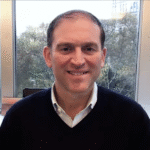
Creating value & enhancing tenant experience with Jonathan Bennett | President | AmTrustRE
Season 6 / Episode 12 / 49:09
In this episode, Jonathan shares how he is helping redefine what success looks like in today’s office market, the importance of differentiating buildings through thoughtful design and curated amenities, and how technology and AI are creating new opportunities to enhance the tenant experience.
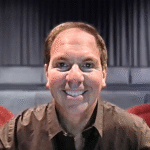
Where heritage meets hospitality: Reimagining CRE with Craig Deitelzweig | President & CEO | Marx Realty
Season 6 / Episode 11 / 35:13
In this episode, Craig shares how his passion for repositioning assets has shaped his approach to integrating hospitality into commercial real estate. Craig reflects on the importance of tenacity, thinking differently, and keeping promises, and why creating inspiring and authentic workspaces is key to tenant engagement and satisfaction.
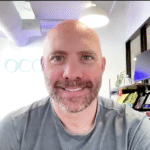
From CRE broker to PropTech founder with Matt Giffune | Co-founder | Occupier
Season 6 / Episode 10 / 42:18
In this episode, Matt discusses the value of industry experience in building PropTech, the evolution of office work in a hybrid era, and why quality and flexibility are now critical to attracting and retaining talent. Matt also shares his perspective on how technology can enhance tenant experience, and the growing potential of AI in the industry.
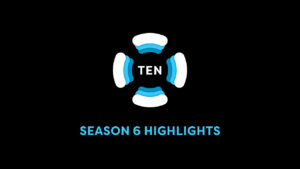
TEN Season 6 Highlights
On season 6 of the TEN podcast, host David Abrams connected with some exceptional leaders in commercial real estate who are at the forefront of innovation, technology, and delivering a hospitality-inspired customer experience to the workplace. Have a listen to some of our favorite clips.
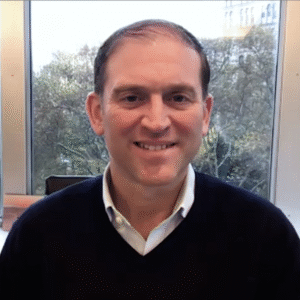
Creating value & enhancing tenant experience with Jonathan Bennett | President | AmTrustRE
Season 6 / Episode 12 / 49:09
In this episode, Jonathan shares how he is helping redefine what success looks like in today’s office market, the importance of differentiating buildings through thoughtful design and curated amenities, and how technology and AI are creating new opportunities to enhance the tenant experience.
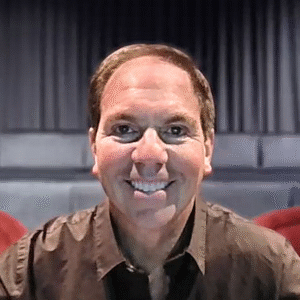
Where heritage meets hospitality: Reimagining CRE with Craig Deitelzweig | President & CEO | Marx Realty
Season 6 / Episode 11 / 35:13
In this episode, Craig shares how his passion for repositioning assets has shaped his approach to integrating hospitality into commercial real estate. Craig reflects on the importance of tenacity, thinking differently, and keeping promises, and why creating inspiring and authentic workspaces is key to tenant engagement and satisfaction.
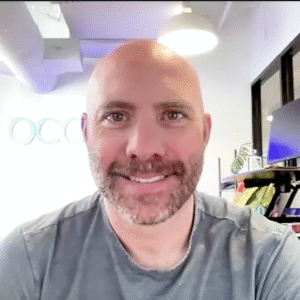
From CRE broker to PropTech founder with Matt Giffune | Co-founder | Occupier
Season 6 / Episode 10 / 42:18
In this episode, Matt discusses the value of industry experience in building PropTech, the evolution of office work in a hybrid era, and why quality and flexibility are now critical to attracting and retaining talent. Matt also shares his perspective on how technology can enhance tenant experience, and the growing potential of AI in the industry.